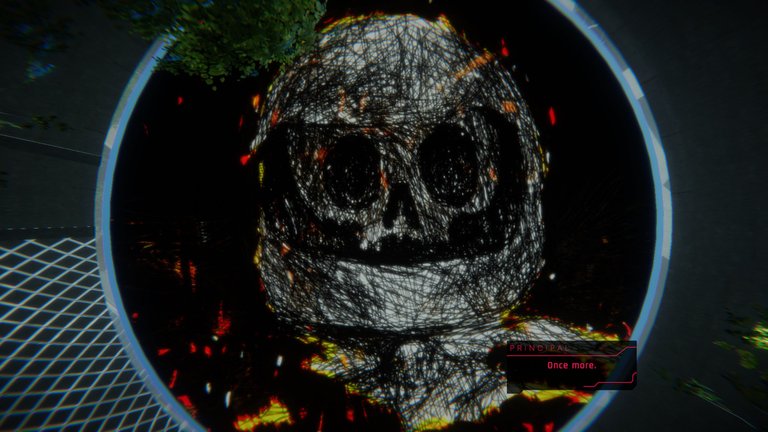(When The Memory Fades Away) 1000xResist
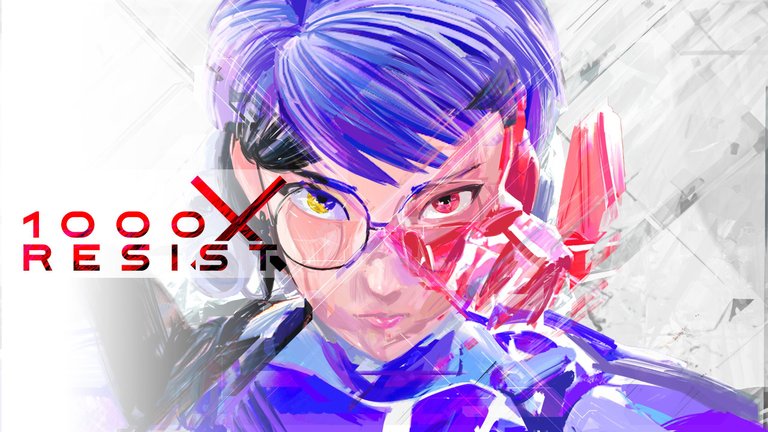

Memories are what makes a person who they are, the essence of their identity is tied to the past as well as how they present themselves in the present. Often times, some allow their emotions to blur certain things, and start to misremember things. Which can be very fickle to recover from.
Or you know, in some distant future, someone finds a way to clone themselves and create an entire cult around fighting some nebulous invasion forces responsible for the fate of humanity. But it goes a lot further than that. I got to figure that out just by playing Watcher, but the game breaks usual archetypes of game design, sometimes in clever ways to tell its story as well.
1000xResist is a unique avant-garde narrative game from, again, the land of Taiwan, which obviously mixes the influences of games like Detention, as well as implementing story ideas based around the Kuomintang era. And there's a lot to geek out of because it'll start reminding you of other medias.
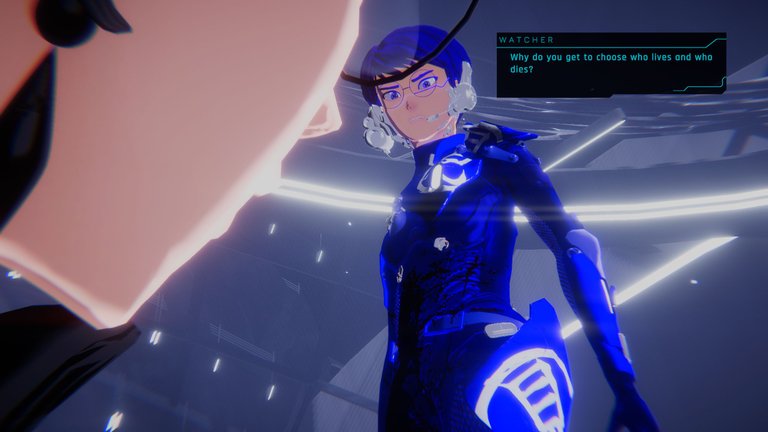
Ok, pretty strong intro, she ah, finally meets her master, but instead of sweet embrace for her loyalty, she stabs her in the back and calls her out for her wrongdoings. It gets more bizarre than that, plot twists and all. Back to the beginning, where my quest finally starts.
I have to go on a sacred passage, exploring the AllMother's old memories, of her being in middle-school with a friend of hers named Jiao. My so-called sisters before me wishes me luck. Some Mise-en-scène, and after a flash, it transitions Watcher into a classroom, red, eerily quiet, leaving items, belongings, and other traces of the past.
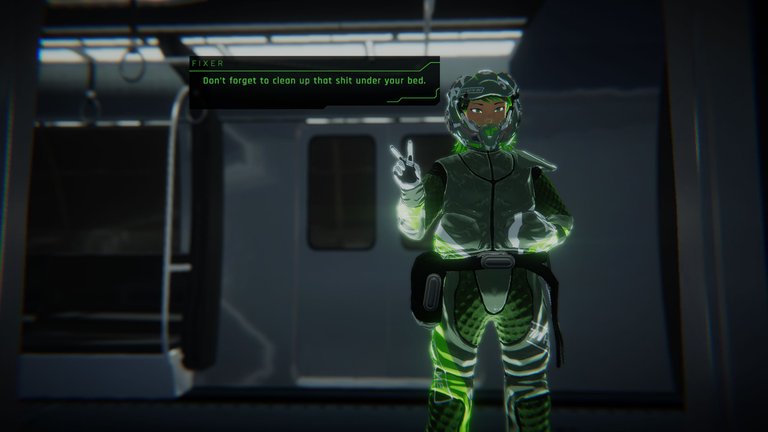
The dialogue after interaction explains everything. Multiple choices exist in order to get a grasp of what's going on. This is a linear narrative story, but choosing dialogue is an effect that makes me dabble into the emotional introspection I'm having each time something happens.
And you can thank the game trying to immerse me into that stuff. At first, everyone speak in monotonous voice, but context looking at the environment, going through the dialogue exposition with someone wearing a Hazmat suit, seemingly looking like an adult helps paint things. When they're not being mysterious, eventually everything starts to surface, soon as I start finding Jiao. Iris's old school friend, who idolizes her, not fitting in an inclusive, all-ethnic English-speaking school.
Even if you didn't get the allegory of what is exactly going on, you can understand emotional context thanks to the dialogue and good voice acting. From here, the ability to warp between two different timelines become available. This is the other puzzle of in this chapter.
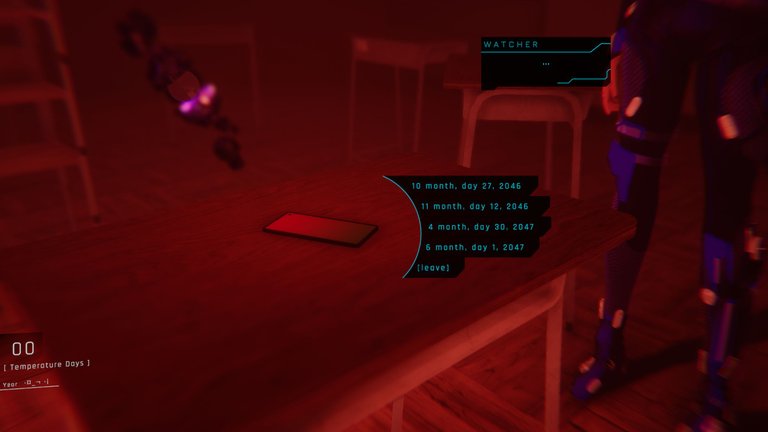
It was asking me to take a leap of faith, as I couldn't grasp what is exactly going on, till I started speaking to the students in the early timeline of 2047 CE. Students are worshiping some alien god on the rooftop, while the teachers being paranoid about a disease spreading, leading to such odd behavior. Yet outside all that, it's just your normal school. Everybody has their thing.
They're busy with school grades, the class projects, you got the film nerds, they're well written enough to feel actually alive. Then there's the dynamic between Jiao and Iris, obviously they're close friends, probably due to their cultural ties. But not everything seems right.
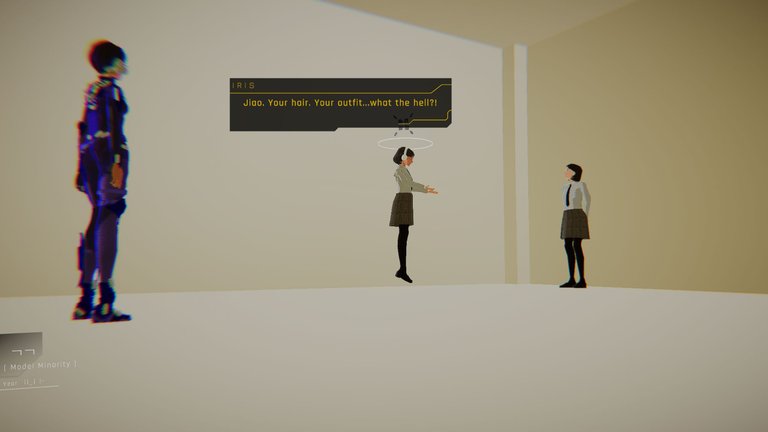

It's made obvious that Iris is stuck with Jiao, who is a little simple-minded about things, though that's not her fault due to where she came from. The former has trouble in her home life, and as much as she's trying to actually get along with Jiao.
But it's asking a lot for a school that has too high of a standard, and especially from someone who isn't from a well-adjusted family either. There's more to it than that, but what results in the end is Iris losing it with Jiao, humiliating her infront of the entire school, before Jiao feeling betrayed, cries out, feeling as if she'll never amount to anything. It tragically ends with her catching the disease.
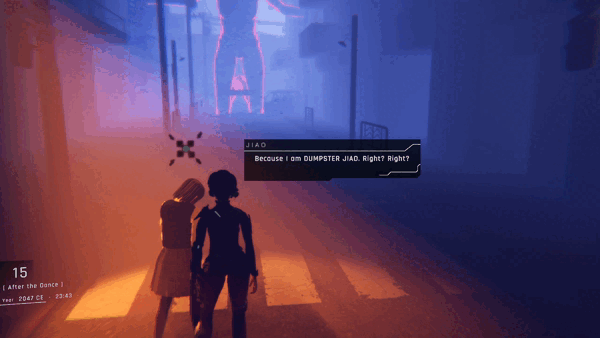
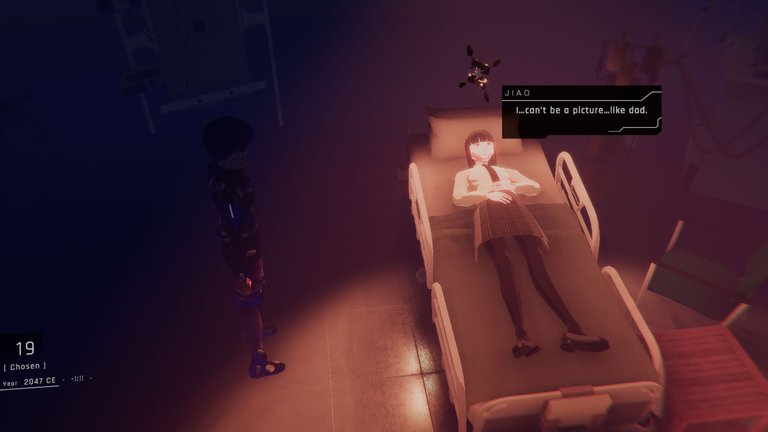
It seems like all of this is designed for the AllMother to give these sisters their purpose. They're all Iris, clones of her, maybe because the progenitor managed to be immune, and only cloned herself while the rest of humanity died. And it's not a story that comes with noble intentions.
Least that's what our friend Fixer thought. She hijacked the memory sequences, tampered around to probably lead me astray, feeding me false information about Jiao, or maybe she's onto something. Taking the risk of doing something very heretical in order to tell Watcher that they're being manipulated into a false cause. Maybe the aliens aren't real, or they are, but Iris isn't.

Storytelling imbues a lot of strong themes which revolve around relationships, trust, choices, having faith, and how we judge one another. It's clear from the get-go that with a lot of borrowed concepts from familiar stuff like Neon Genesis, Paprika, NieR, and so on, this is how it wants to tell its plot. I like the Sci-fi futuristic time exploration concept too.
The game mechanics are intriguing, finely built to tell its story without being too jarring or immersion breaking. And if you thought the heavy emotions peaked here, chapter 2 is where it really starts to become very heavy-handed, not even exaggerating.

I get crayon drawing level of exposition, showcasing how they use authoritarian measures to make sure everything stays the way it is. The propaganda level of inspiring rhetoric, how if not followed, you are just simply erased for betraying the cause. A faux pas cause about fighting alien forces, no one has true grasp of comprehending who they exactly are.
This is a title with a lot of high concept stuff, and it does well to execute them. Like, they tell me to look on top of the dome, with the clear skies basically switches to images, including this.
